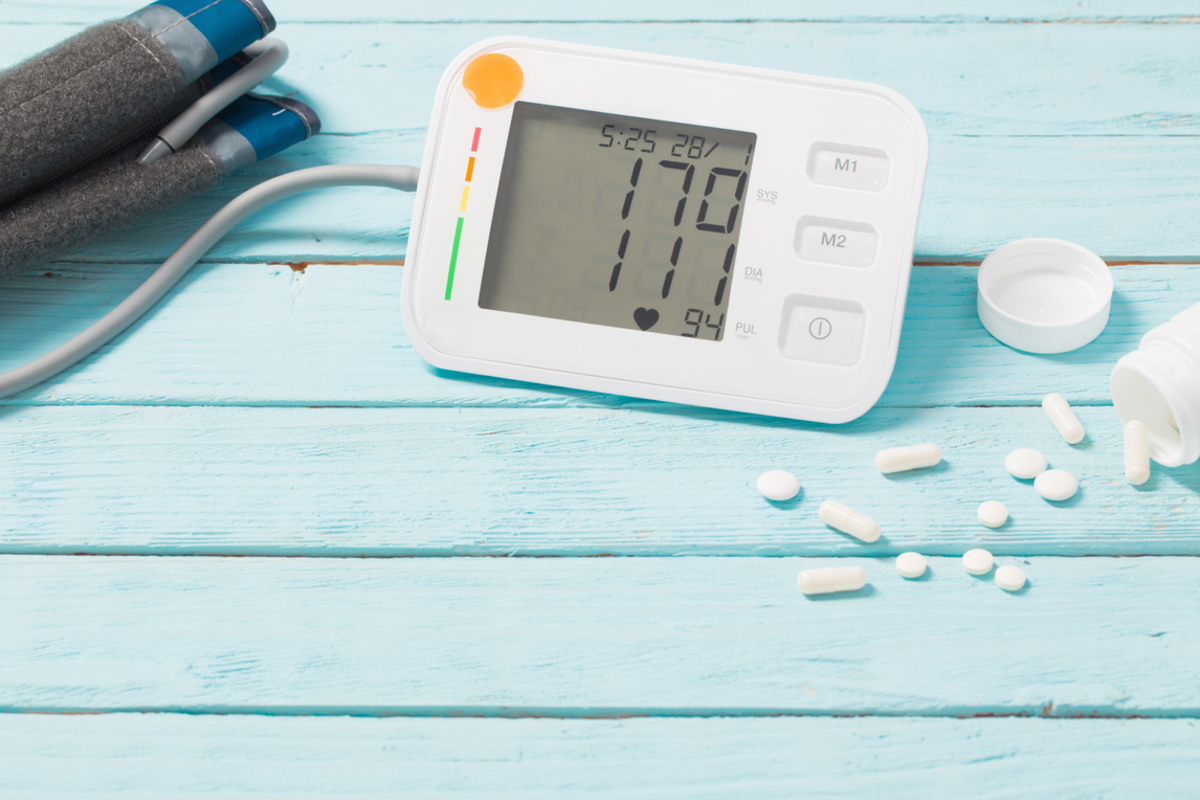High blood pressure is common — and really, shockingly common. According to the CDC, 45 percent of the adult US population technically have hypertension, if you go by the lower-threshold definition of a systolic over 130 and/or a diastolic over 80.

What medications can help you manage high blood pressure?
I've been a diagnosed hypertensive who takes meds for over a decade now, so I know that if you're reading this, you don't necessarily want another lecture about how you should quit smoking, lose weight, or cut out the salt (if you even need to do any of those things — because you can definitely have hypertension without that!).
Neither do you need another definition of what hypertension actually is, or more information about how uncontrolled high blood pressure can send you to an early grave.
So, let's keep it practical.
Many different classes of medications can be prescribed to help you keep your hypertension under control. They all work slightly differently, come with different potential side effects, and bring their own things to be aware of.
You can learn more about types of hypertension drugs and their side effects by clicking the link just here, but to keep it brief, some of the most common classes are:
- Beta blockers
- ACE inhibitors
- Calcium channel blockers
- Angiotensin II receptor blockers
- Alpha blockers
What are diuretics? How do they work?
Diuretics are often called water pills, and in my native language also actually "pee pills" — because that's what they make you do. Diuretics work by helping your body eliminate excess salt and fluids, through urination. They are prescribed for many different medical conditions, from heart, liver, and kidney failure to hypertension. In the case of hypertension, getting rid of excess fluids from your blood vessels lowers your blood pressure.
Diuretics are a class of medication, but they also have their own subtypes:
- Thiazide diuretics reduce excess fluids but also relax the blood vessels. It's no surprise that they are most commonly prescribed for hypertension. Examples include chlorthalidone, chlorothiazide, hydrochlorothiazide (which I take), and metolazone. These generic names are also sold under various brand names.
- Potassium-sparing diuretics work without putting you at risk of a potassium deficiency, but because they're not as good at lowering blood pressure as a stand-alone prescription, these diuretics are more often taken alongside another kind of pill, like an ACE inhibitor. Examples include amiloride hydrochloride and triamterene.
- Loop diuretics like furosemide and bumetanide are most often prescribed to people with heart failure.
- Then, there are combination diuretics which combine several different kinds.
Diuretics for hypertension: Are there any side effects?
Every medication comes with possible side effects. Diuretics are generally well-tolerated and safe. On a personal note, they're the only class of hypertension drugs that I have been on (and am still on) that have never caused me any experience I'd describe as truly unpleasant.
- The most common "side effect" is actually more of an "effect", minus the "side" — diuretics do increase the frequency with which you need to urinate, especially in the morning. You get used to that quite quickly, though. If you feel thirstier than you did before you started on diuretics, that's quite common, too. These pills get rid of excess fluid, after all.
- Some diuretics will make your potassium levels drop. Discuss this with your doctor. Don't start taking supplements on your own, as some other hypertension medications (like ACE inhibitors and angiotensin II receptor blockers) put you at serious risk of hyperkalemia (too much potassium). Some of the possible signs of a potassium deficiency are fatigue and leg cramps. You can expect to have your kidney function tested from time to time, as well as yoru potassium levels.
- These drugs can affect your cholesterol levels, and regular lipid panels will be part of the routine monitoring you receive.
- Gout is an unusual side effect of long-term reliance on diuretics.
- If you're a man, erectile dysfunction is unfortunately on the agenda as a possible side effect of taking diuretics as well.
- If you have diabetes, make sure to coordinate your treatment well with your doctor, as the diuretics you get for your high blood pressure may raise your blood sugar.
- As with any drug, an allergic reaction is possible, and very much not fun. As long as the diuretic you're taking stays the same, this won't happen to you after the initial adjustment period has passed, though.
Bonus tips — do reduce your salt intake as your doctor will advise, but don't replace your salt with substitutes potentially high in potassium. Get used to regular trips to the bathroom before events like watching a movie or attending a meeting. Always ask your healthcare provider if you have any questions whatsoever.
- Photo courtesy of SteadyHealth
- www.ccjm.org/content/86/9/601
- www.heart.org/en/health-topics/high-blood-pressure/changes-you-can-make-to-manage-high-blood-pressure/how-potassium-can-help-control-high-blood-pressure
- www.heart.org/en/health-topics/high-blood-pressure/changes-you-can-make-to-manage-high-blood-pressure/types-of-blood-pressure-medications
- pubmed.ncbi.nlm.nih.gov/1264895/


Your thoughts on this